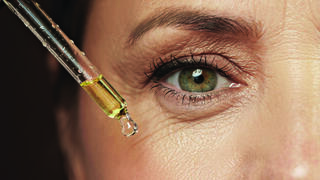
“To understand what’s unsuitable for mature skin, we first need to recognize the differences between youthful and aging skin,” explains Ronit Segev, founder and owner of Biofor, a professional cosmetics company, and a biologist with a master’s degree in biology. “After menopause, the skin undergoes significant changes: it becomes thinner, more permeable and increasingly sensitive. The immune system also weakens with age, making the skin less effective at fending off irritants and allergens.
This can lead to itchiness, redness and rashes. Lower estrogen levels exacerbate dryness, reduce elasticity, and contribute to fine lines. As these changes occur, it’s crucial to be aware of ingredients that may now be too harsh.

Products that were once harmless may now stress aging skin,” says Segev. 2 View gallery Skin care at an adult age ( Photo: Shutterstock/ASAP creative ) Here’s what Segev suggests avoiding when caring for mature skin: High alcohol content products “Denatured alcohols, such as ethyl alcohol, can overly dry mature skin and compromise its barrier, potentially increasing sensitivity and vulnerability,” says Segev. “Many toners contain high alcohol concentrations.
Opt for alcohol-free formulas or those with low levels, around 10%-20%.” To determine alcohol content, Segev advises checking online for store-bought products or consulting a professional for those purchased through a cosmetician. Fragranced products “Mature skin is often more reactive to fragrances,” Segev explains.
“Perfumed products can cause inflammation, redness and allergic reactions, worsening age-related concerns like dryness and sensitivity. When trying a product, always test the scent. Subtle fragrances usually indicate fewer aromatic compounds, reducing the likelihood of irritation.
For very sensitive skin, fragrance-free options are best.” 2 View gallery ( Photo: Shutterstock ) High-concentration retinol Retinol is a celebrated anti-aging ingredient, but Segev warns that high concentrations or daily use can irritate skin post-menopause. “Retinol is fantastic, but after 60, stick to concentrations under 1%.
This ensures efficacy without irritation,” she advises. For those new to retinol, Segev compares the adjustment to starting an intense workout regime later in life: “If your skin isn’t accustomed to it, start gradually. For seasoned users, the transition is often smoother.
” Coarse scrubs “Scrubs with large, rough particles – like coarse salt – can create micro-tears in the skin, causing irritation and dryness. Mature skin is thinner and more fragile, so opt for gentle exfoliants, especially for the face,” Segev suggests. For the body, she recommends acid-based exfoliants, which are both effective and less abrasive.
High-concentration glycolic acid “Hydroxy acids, particularly glycolic acid, require caution. While beneficial, they can irritate if overused or too concentrated,” says Segev. She advises staying below a 10% concentration after age 55.
“Instead, consider lactic acid. It’s gentler, helps restore hydration, and works beautifully for aging skin,” she adds. Moisturizers without active ingredients “Many women with mature skin gravitate toward heavy moisturizers because their skin feels dry.
However, this dryness often signals a buildup of dead skin cells,” explains Segev. “Applying plain moisturizer won’t address the underlying issue.” She recommends choosing moisturizers enriched with antioxidants to combat free radicals and containing appropriate levels of acids or retinol.
Get the Ynetnews app on your smartphone: Google Play : https://bit.ly/4eJ37pE | Apple App Store : https://bit.ly/3ZL7iNv Segev also notes that not all mature skin is dry.
“I’m 56 and have oily skin. Don’t assume age equals dryness. Choose products tailored to your skin type and condition, she advises.
By avoiding these pitfalls and understanding your skin’s unique needs, you can maintain a healthy, radiant complexion at any age. >.













